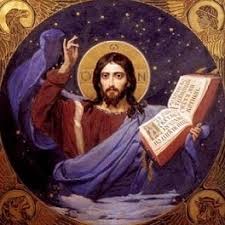Mount Calvary Church
A Roman Catholic Parish
The Personal Ordinariate of S. Peter
Eutaw Street and Madison Avenue
Baltimore, Maryland
Rev. Albert Scharbach, Pastor
Andrew Johnson, Organist and Music Director
Stephanie Zimmerman, guest violinist
Trinity XX
October 25, 2020
8:00 A.M. Said Mass
10:00 A.M. Sung Mass
This mass will be livestreamed.
_________________
Organ Prelude
Ornament of Grace, Bernard Wayne Sanders
Bernard Wayne Sanders (b. 1957) was born in DePere,Wisconsin, but has spent his career as an organist and composer in Germany since 1974. The American Guild of Organists selected “Ornament of Grace” as the first prize winner of the 2008 International Organ Celebration. The beautifully expressive solo melody is complimented by a graceful accompaniment on the organ. For the past decade since its publication, this piece has been performed by organists and solo instrumentalists from around the world.
________
Organ Postlude
Suite in D major: Allegretto, att. Leonardo Vinci
Leonardo Vinci (1690-1730), an Italian opera composer on the Baroque. This joyful postlude is the first movement from his Suite in D major for solo instrument and basso continuo.
_________________
Offertory Anthem
A New Commandment, Thomas Tallis
A new commandment give I unto you, saith the Lord,
that ye love together, as I have loved you,
that e’en so ye love one another.
By this shall ev’ry man know
that ye are my disciples,
if ye have love one to another.
Thomas Tallis (1505-1585) composed for the Church of England in the 16th century. Anglican anthems from this period were expected to have English texts set intelligibly so that the listener could better absorb the meaning of the text. In this anthem, each textual section is stated clearly in homophony or with a voice pairing, then
repeated in imitation.
_________
Communion Anthem
Ubi caritas, Maurice Duruflé
Ubi caritas et amor, Deus ibi est.
Congregavit nos in unum Christi amor.
Exultemus et in ipso iucundemur.
Timeamus et amemus Deum vivum.
Et ex corde diligamus nos sincero.
Where charity and love are, God is there.
Christ’s love has gathered us into one.
Let us rejoice and be glad in Him.
Let us fear and let us love the living God.
And may we love each other with a sincere heart.
Maurice Duruflé (1902-1986), who was Titular Organist at Saint- Étienne-du-Mont and Professor of Harmony at the Paris Conservatory. “Ubi caritas” is the first of his Four motets on Gregorian Themes, which is based on the Maundy Thursday antiphon of the same name. Described as “the Debussy of organists,” Duruflé surrounds the ancient chant with colorful, impressionistic harmonies.
_________________
Hymns
Love divine, all loves excelling is by Charles Wesley (1707—1788). The hymn is a prayer: through the incarnate Christ, we pray for the indwelling of the Holy Spirit, and ask that we would never be separated from the love of God in Christ, who works in us and through us until our time on earth is done. One of the most loved Welsh tunes, HYFRODOL (here on organ and bagpipe) was composed by Rowland Hugh Prichard (1811—1887) in 1830 when he was only nineteen.
O love that will not let me go. At age 20 George Matheson (1842-1906) was engaged to be married but began going blind. When he broke the news to his fiancée, she decided she could not go through life with a blind husband. She left him. Before losing his sight he had written two books of theology and some feel that if he had retained his sight he could have been the greatest leader of the Church of Scotland in his day. A special providence was that George’s sister offered to care for him. With her help, George left the world of academia for pastoral ministry and wound up preaching to 1500 each week–blind. The day came, however, in 1882, when his sister fell in love and prepared for marriage herself. The evening before the wedding, George’s whole family had left to get ready for the next day’s celebration. He was alone and facing the prospect of living the rest of his life without the one person who had come through for him. On top of this, he was doubtless reflecting on his own aborted wedding day twenty years earlier. In the darkness of that moment George Matheson wrote this hymn. He remarked afterward that it took him five minutes and that it was the only hymn he ever wrote that required no editing. Albert L. Peace (1844-1912), a well-known Scottish organist of his day, wrote the tune ST. MARGARET
For the beauty of the earth was was written by the Anglican layman Folliott Sandford Pierpoint (1835-1911) as a communion hymn. The refrain alludes to the post-communion prayer in the Book of Common Prayer, which begins “O Lord and heavenly father, we thy humble servants entirely desire thy fatherly goodness mercifully to accept this our sacrifice of praise and thanksgiving.” The tune DIX is by Conrad Kocher (1786-1872).

Awesome! Thank you for sharing!